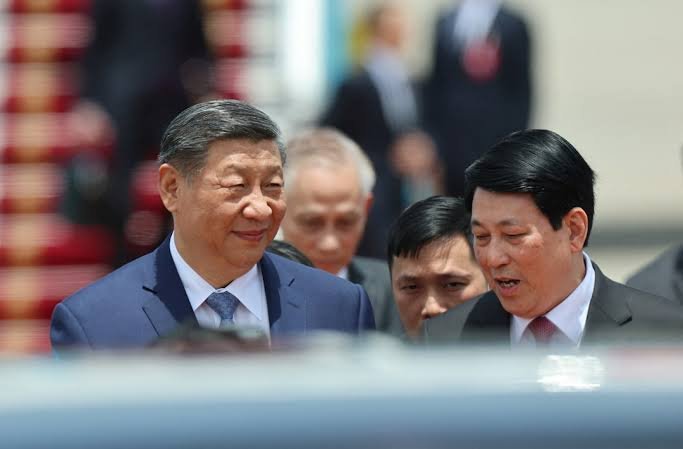Chinese President Xi Jinping undertook a series of high-profile state visits to Vietnam, Malaysia, and Cambodia from April 14 to 18, 2025, as part of a broader diplomatic effort to deepen regional alliances and strengthen economic partnerships in Southeast Asia. The visits come at a time of heightened trade tensions between China and the United States, with Washington imposing significant tariffs on goods from China and several of its regional trading partners. These developments have prompted Beijing to reinforce strategic ties with neighboring countries as a counterbalance to mounting Western pressure.
In Vietnam, President Xi’s delegation engaged in wide-ranging talks with top government officials, focusing on trade, infrastructure development, and regional security. The two nations are expected to formalize over 40 bilateral agreements, encompassing areas such as digital innovation, cross-border logistics, renewable energy, and cultural exchanges. This marks a significant step forward in China-Vietnam relations, particularly given their complex historical and territorial dynamics.
In Malaysia and Cambodia, the Chinese leader emphasized China\'s commitment to supporting economic growth and infrastructure development through the Belt and Road Initiative. President Xi pledged continued investment in key sectors, including transportation, manufacturing, and digital connectivity. His meetings also highlighted China\'s interest in fostering people-to-people ties and promoting regional stability in the face of global geopolitical shifts.
Analysts view Xi Jinping’s Southeast Asia tour as a calculated move to solidify China’s influence in the region while seeking to mitigate the economic fallout from the ongoing trade conflict with the U.S. By strengthening diplomatic and economic relationships with key ASEAN members, China aims to diversify its trade routes and reinforce its standing as a regional power.
The outcomes of the visits are expected to shape regional cooperation frameworks and influence the strategic balance in the Asia-Pacific, especially as global powers continue to jostle for influence in an increasingly multipolar world.


















Keydonn
Nice
Fausta
Ok
Suhuyini
Okay
Polina
Okay
Erry123
Good
Adungchaab
Good now